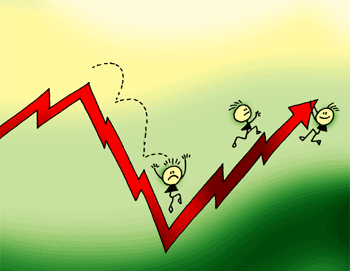
If you do your own investing, have you ever wondered whether you should turn things over to a professional advisor? This article attempts to shed some light on this topic and to provide you with some things to think about so that the best decision can be made.
When the Time ComesProfessional advisors say there is no magic asset number that pushes an investor to seek advice. Rather, it is more likely an event that spooks a person and sends him scurrying through an advisor's door. The event could be something that requires the individual to manage an asset himself.
According to Charles Hughes, a certified financial planner in Bayshore, New York, the event typically involves either the receipt of or access to a large sum of money that the individual didn't have before.
"When you reach a point in which you're constantly afraid that you're going to make a mistake with your investments, then you need professional advice," according to Raymond Mignone, a certified financial planner in Little Neck, New York.
Often, someone who has never spent or managed more than a few thousand dollars is looking at managing a six-figure or group of accounts.
If this happens to someone just about to retire, the decisions that need to made are more critical, as the retiree will want to make this money last. As such, people often seek professional advice just before they retire, because they feel that they need professional advice to make such long-term decisions. (For more insight, see our Retirement Planning Tutorial and A Pre-Retirement Checkup.)
When it comes to portfolio management, it is important to determine your plan of attack. Take the 401(k) plan, for example. When you're contributing to the plan, you may feel like it's not your money. You can't do with it what you want because you'll be penalized. But when retirement is coming and you can access that money, the question often arises about what you are going to do with it. For many, this can be when they decide whether they can manage their own affairs or whether they should seek professional advice.
Judging YourselfThe need for critical self evaluation is vital when determining whether or not to hire a financial planner. Advisors say the decision depends on the investor.
The following questions should help you sort out if you need an advisor:
* Do you have a fair knowledge of investments?
* Do you enjoy reading about investments and doing research?
* If you have expertise in investments? Do you have the time to monitor and evaluate them and make periodic changes to your portfolio?
If you answered "yes" to the above questions, you may not need an advisor or financial planner.
Not So Fast
However, Loren Dunton, one of the founders of the financial planning movement, says that many people who believe that they don't need a financial planner could benefit from one anyway.
"Most people need a planner. The ones who don't need one are usually smart enough to use one," wrote Dunton in "Financial Planning Can Make You Rich" (1987).
So let's assume someone decides that, for any of the reasons stated above, he or she does need an advisor. There's another difficult task: Finding the right advisor.

 U.S. light, sweet crude for March was flat, following a gain of $2.19 in New York on Thursday.London Brent crude for the new front-month April contract was down slightly.
U.S. light, sweet crude for March was flat, following a gain of $2.19 in New York on Thursday.London Brent crude for the new front-month April contract was down slightly.
 If you do your own investing, have you ever wondered whether you should turn things over to a professional advisor? This article attempts to shed some light on this topic and to provide you with some things to think about so that the best decision can be made.
If you do your own investing, have you ever wondered whether you should turn things over to a professional advisor? This article attempts to shed some light on this topic and to provide you with some things to think about so that the best decision can be made.

